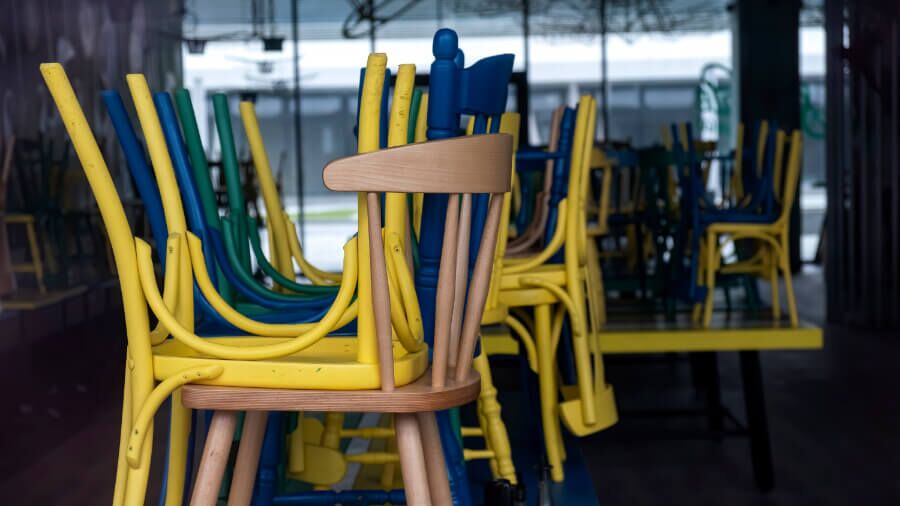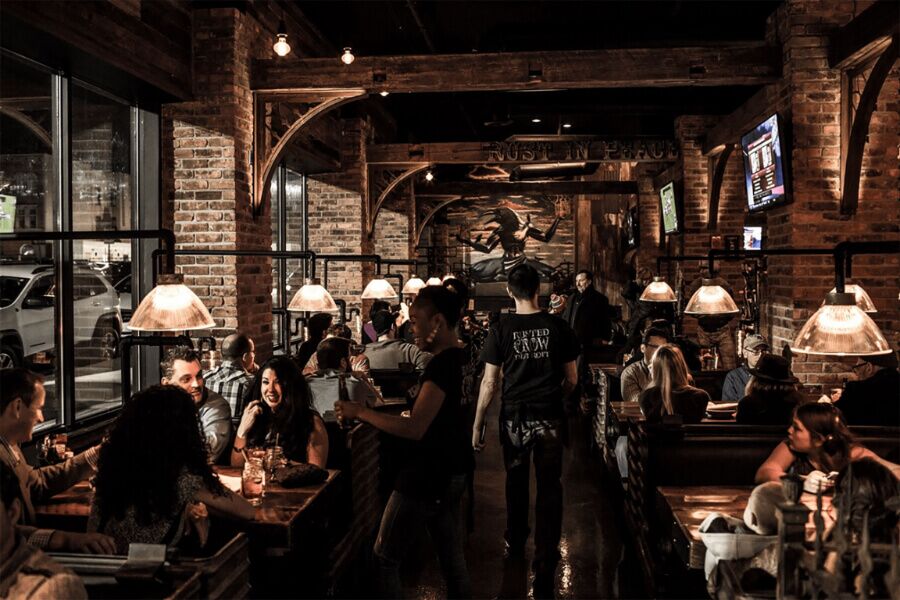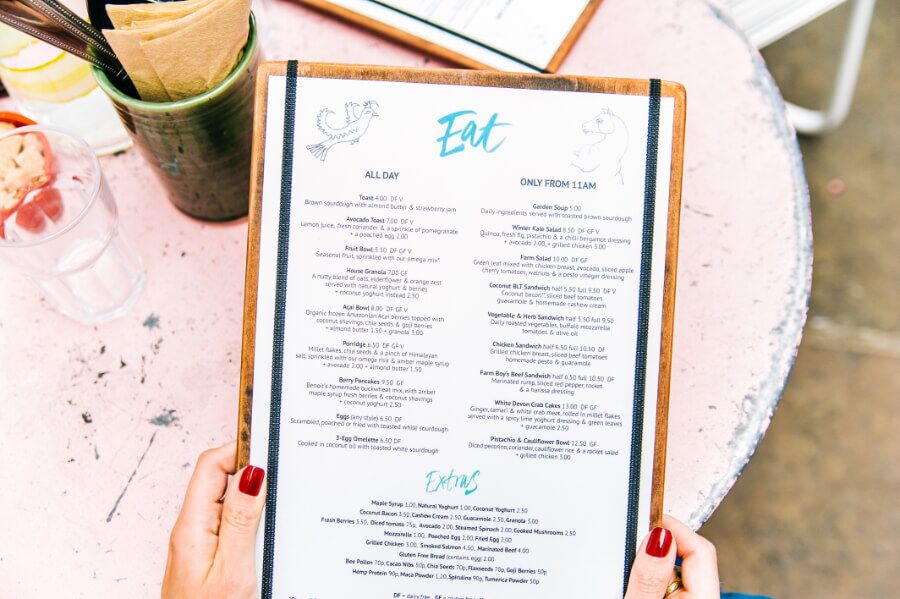Why we can’t wait to have restaurants back
Spicy Adventures
Your cart is empty.
SUBTOTAL
£0.00

Spicy Adventures
After a long, bleak winter, the latest announcements from the British PM Boris Johnson have finally offered a glimmer of hope in the UK. Perhaps, after all, there is light at the end of the tunnel. While there’s still a terribly long way to go through the Covid-19 pandemic, the ‘roadmap’ out of lockdown has really given people something to look forward to.
The excitement across social media has been palpable in the days after. The memes, quick, witty comments and one-liners dreaming of June 21st were out in force. Millions of people, unsurprisingly, cannot wait to get out again. And among this frenzy of hopes and dreams is one clear thing on everyone’s ‘post-lockdown to-do’ list: dine out at a restaurant.
Over the past year, no other industry has suffered more from Covid-19 damage than the restaurant and hospitality sector. Millions of staff have lost jobs with many businesses closing the shutters forever, while others hang on by a thread. Seeing your favourite restaurant empty and devoid of life, shutters down and chairs stacked high – this has been one of the most sobering, sad images of the pandemic.

Already, as soon as the announcements were made here in the UK, the phones were ringing and reservations were flooding in. New life was finally being breathed into the industry. So, why do we love restaurants so much? What is it that makes them so important to our way of life and why can we not wait to get back?
If you look at it from outside ‘the box’ that is our culture and society, if you were to pitch someone the idea of going to a place where you spend large sums of money and dine amongst strangers? The whole idea sounds a little weird. Yet here we are, pining after the experience more than ever. And that’s exactly what this is all about. The experience.
You see, people don’t go to restaurants for the food. Seriously. If you want delicious food, you can just stay at home and cook something up in the comfort of your own kitchen, perhaps using a few lovely hand-blended spices. We go to restaurants for an entirely different reason.
Restaurants are a lot like busy sea ports of long forgotten empires. The Istanbuls, Venices, Hong Kong and Singapores of society. Within the restaurant lies not just food, bubbling away in the kitchen but a vast melting pot exchanging culture and ideas. Restaurants expose us to new ways of thinking and new ideas from places we could otherwise never visit. Eating at a restaurant is as nourishing for the brain as it is for the stomach. Whether consciously or subconsciously, these are places where you challenge your perceptions and ideals.

Of course, this is all helped by the stories that are told by the chefs and restaurateurs themselves. In the past two decades, chefs have seen their fame and notoriety skyrocket to rock-star levels. People don’t just want to eat their food, they want to get to know the person behind it all. Many of the best restaurants nowadays are extensions of the chef and restaurateurs themselves. Their establishment is the vehicle in which they can express themselves.
While some will spin grand narratives, taking diners along a high-end fine-dining journey (a minimum of 15 courses no doubt), others have also begun to celebrate the provenance of their food. They celebrate the local farmers and land around them – it’s authentic and you can perhaps only utilise certain things seasonally. We can’t get enough of this storytelling and the individual unique selling points of each region. We don’t just come to restaurants to eat, but to celebrate our food and our culture.
Restaurants also offer something of an escape from the outside world. They are a warp in time where you can travel back to a different age or just take a breather. They are safe bubbles – cocoons immune to the relentless ongoings of the outside world. From the very moment you step through the door and take a seat, you are on a journey, interacting with the waiter, other guests and the general ambience and feel of each place. Is it any surprise that the word ‘restaurant’ comes from a French verb meaning ‘to restore’.
Furthermore, the restaurant is, in many ways, a symbol of freedom. It is a celebration and shrine to the idea of choice. In freedom, choice exists and we can make it. Do you remember how fun it is to enter a restaurant and browse through the menu for the first time? The delight and excitement as you weigh up which dish you fancy more, which wine it will match with, which dessert you will inevitably order even after insisting you’re full. We miss this.

Of course, we rarely do this on our own. A key part of going to a restaurant is that you do it with others. The act of going to a restaurant is to socialise with your friends or spend some real, quality time with a loved one. This has always been the case. Across millenia, restaurants have been seen as democratic clubs – a place where people may gather to open minds, sharing and discussing those new ideas. It’s no coincidence that geniuses such as Einstein and Freud used to start their mornings in the Viennese coffee shops.
They are a place for iconic, key milestones and special moments through human life. First dates, important business meetings, anniversaries. Even the tough parts such as breakups and funerals. All have taken place in the restaurant. Elvis’ first Las Vegas contract? Written on a restaurant tablecloth.
Lastly, there is the importance of the restaurant and hospitality industry on any country’s economy. In the UK, this industry directly employs 4% of the whole UK workforce – the 4th largest employer in the country. It’s worth noting that they also employ a vastly disproportionate number of workers with lower qualifications (50% of workers in this industry have just a single GCSE or less). Restaurants, cafes, pubs and bars are also the venues that bring in visitors and tourists from afar. They are essential to the success of our cities and towns – an integral cog in the machine that drives a thriving high street. Did you know that through the late 2010’s, the industry was generating over £73bn (billion!) of gross value that was being directly added to the UK economy, as well as a further £87bn indirectly. Not bad.
So, in the short term, things have never been more uncertain (in living memory, at least). It is hard to plan for tomorrow yet alone next week and next month. But there is one guarantee. Whatever happens in life, restaurants will be there. They have survived multiple recessions, terror attacks in Paris, London and New York. They’ve navigated tax reductions, annual flooding and (most scarring of all, perhaps), negative reviews on Google and TripAdvisor.
Though the pandemic has undoubtedly changed this industry, they’re not going anywhere. Ultimately, that’s because we need them. They are a part of what it means to be human and to live life. We can’t wait to have them back.

Understanding Spices
Spices have long been integral to the UK's culinary landscape, adding depth, flavours, and richness to a myriad of dishes. From the pungent aroma of cumin in Indian curries to...
Read MoreUnderstanding Spices
Confetti is an essential part of any wedding day. Not only is it a wonderful way to greet a newlywed couple, but it also provides some beautiful photo opportunities. The...
Read MoreSeasonal Ideas
It’s no secret that any handmade gift will always be more special than a store-bought one. Homemade food gifts are especially wonderful, a labour of love that shows someone you...
Read MoreHealth and Wellbeing
It’s no secret that winter’s cold and gloomy weather makes us crave indulgent dishes like fondue and baked goods like sticky toffee pudding and apple crumble. While Christmas is the...
Read More